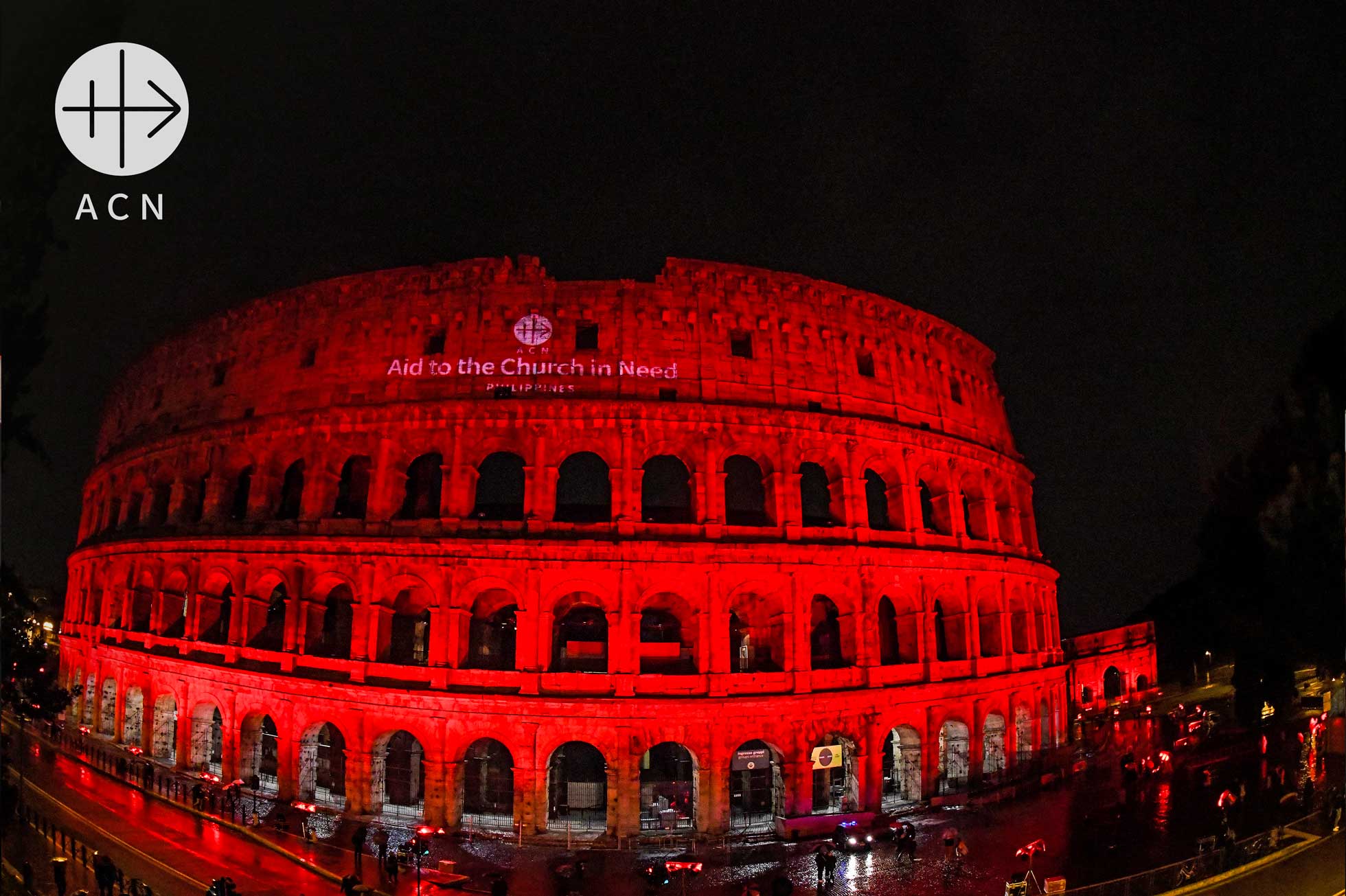For the first time in its nearly 2000-year history, the Roman Colosseum was illuminated in red—along with churches in Syria, Iraq, and Portugal—in a display of solidarity with persecuted Christians around the globe. The symbolic initiative at the end of February was sponsored by Aid to the Church in Need, a Catholic charity that describes its mission as providing pastoral and humanitarian assistance to persecuted Christians throughout the world.
Rome’s Colosseum is bathed in red light on February 24 in a show of solidarity with Christian’s martyred around the world.
Photo: Aid the Church in Need/ https://www.facebook.com/acninternationalorg
The illumination event in Rome highlighted the case of Asia Bibi, a Pakistani Catholic mother sentenced to death in 2010 under Pakistan’s unjust blasphemy laws. Bibi’s family spoke about her terrible suffering in prison in the years since. A Nigerian Christian woman, Rebecca Bitrus, told of being held hostage for two years by the Islamist terrorist group Boko Haram.
These cases of religious persecution of Christians are indicative of a global religious freedom crisis affecting people of all religious traditions. Pew Research Center reports that 76 percent of the world’s population “live in countries with a high or very high level of restrictions on religion.”
Research by Pew also shows that Christians face increasing levels of harassment in “more countries than any other religious group.” Religious harassment is particularly severe in the Middle East and North Africa.
This state of affairs is reflected in the findings of the Under Caesar’s Sword initiative, a global research project that seeks to raise solidarity for persecuted Christians worldwide. The initiative investigates the various ways Christian communities throughout the nations respond to violations of religious freedom and persecution.
The Religious Freedom Institute (RFI) is a co-sponsor of “Under Caesar’s Sword.” Scholars from RFI’s Middle East Action Team and South and Southeast Asia Action Team have contributed research and reflections on this project on RFI’s Cornerstone Forum.
Senior officials from the European Parliament joined Vatican officials at the event at the Colosseum. Jan Figel, the European Union’s Special Envoy for the Promotion of Religious Freedom or Belief, stated that moments and events such as this “can open people’s hearts and minds, awaken their interest in the subject of religious freedom, and encourage them to show greater solidarity with those who suffer.”
THE RFI BLOG

Does Southeast Asia Lead the World in Human Flourishing?

RFI Leads Training Session on Religious Freedom Law and Policy for U.S. Army War College

Oral Argument in Charter School Case Highlights Unconstitutional Motives Behind OK Attorney General’s Establishment Clause Claim

Largest Longitudinal Study of Human Flourishing Ever Shows Religion’s Importance

Keys To Human Flourishing: Faith And Relationships Outweigh Wealth
CORNERSTONE FORUM

Reaffirming Religious Freedom: Bridging U.S. Advocacy and Iraq’s Constitutional Framework

Political Polarization, Same-Sex Marriage and Religious Liberty

Bridging the Gap Between International Efforts and Local Realities: Advancing Religious Freedom in the MENA Region

Challenges to Religious Freedom in Iraq and the Critical Need for Action


